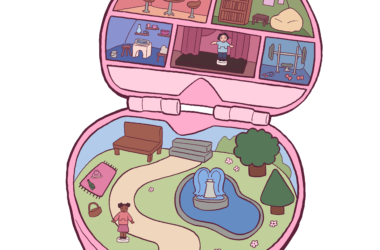As the so-called “Harvard of the north,” McGill is well known both within Canada and internationally for its high academic standards. Students of this lauded institution like to think that their diploma will grant them an edge over other recent grads in the Canadian job market and place them somewhere near the top of the graduate school application pile. But is the value of a degree from McGill being undermined by the ease with which one can pull off an “A” grade in so many intro-level and elective courses?
It doesn’t get any easier than this…
Understanding Planet Earth (EPSC 201)Fall and winterMeant to teach students about the origin of the Earth and its place within the solar system, this course has intro-level written all over it. Professor Anthony Williams-Jones says that while his intention is not to give out easy grades, “most people do very well,” with about 25 to 30 per cent of the class receiving an A or A- each semester. Jenny (last name withheld), U3 International Development, took the course last semester and received a grade of A-, despite her less-than-stellar attendance record. “I just took it as an elective because I heard it was an easy class,” she says. Indeed, the class is as straightforward as it gets – all PowerPoint slides are online and Williams-Jones does not even require that students read the textbook, which he designates as an optional purchase.
The Art of Listening (MUAR 211)Fall and winterOf all the arts, listening might just be the easiest to master. One of very few classes designed for students who have no musical experience whatsoever, this course introduces the sounds of classical music and their historical context to students through, well, listening. Instructor Liz Blackwood says that the class average is usually on the high end, at either a B+ or an A-, based on two midterms, two assignments and a final exam. Alex Kang, UO Management, is hoping to snag one of those high grades. “I heard it’s an easy course. … I want to boost my GPA,” he says. Blackwood tries to “keep the course atmosphere relaxed” and distributes handy course notes and review sheets before exams.
Natural Disasters (EPSC 250)Fall onlyThis course is offered through the Department of Earth and Planetary Sciences to “examine the science behind different types of disasters,” such as hurricanes, volcanoes, tornadoes, meteorite impacts and tsunamis. For all closet science geeks out there, this is definitely the course for you. Professors John Gyakum and John Stix provide an extensive explanation of how to write the five-to-ten-page term paper, something few university profs take the time to spell out, and provide examples of possible exam questions in their syllabus. For Julia Barone, U3 Biology, Natural Disasters was an obvious elective choice since it is still scientifically focused, but her friends “said it was pretty simple compared to biology classes.”
Geography of the World Economy (GEOG 216)Fall onlyThis is an economics course for the non-economics major. If you are interested in how the global economy functions on a macro level, but would rather pull your hair out than take an economics course at McGill, this is a great alternative. Anna Neilson, U3 International Development, is excited about the course because it counts toward her major, but she admits, “at the same time, it’s so basic and the professors are really good.” Professors Breau and Akman teach using a variety of case studies to maintain student interest and use a simple evaluation system: three tests and a final exam.
NOT as easy as 1,2,3
Introduction to Psychology (PSYC 100)Don’t be deceived by the 100-level code that accompanies Dr. Donderi’s class, which focuses on complex human behaviour, including perception, psychopathology and human learning. The level of scientific knowledge necessary to pull off a high grade may be more than the science-illiterate student can handle.
Introduction to Philosophy (PHIL 200)Contemplating the complexities of life is not exactly child’s play. Professor Storrs McCall is as cute as a button, but his essay assignments (worth 60 per cent of your grade) can be killer. Does the existence of an omniscient God, who knows exactly what the future will bring, imply that free choice is an illusion? I don’t know, you tell me.
Sexual Ethics (RELG 271)Do not be fooled. This course, despite what it sounds like, is not a lesson in the ethics of freshman sexual escapades. More likely, students will be expected to debate the merits of social constructivism with relation to pornography in a six-page paper.
Some advice from the expertsSo, when it comes to choosing courses to fill those cherished elective slots in your schedule, should you be looking to boost your GPA with ease, or taking an academic hit for the sake of challenging yourself to reach unprecedented levels of knowledge? It depends on individual post-graduate goals and the strength of your record, according to Donald Sedgwick, senior advisor for the faculties of arts and science. “An employer is probably not looking closely at the individual courses … [but] admissions to graduate programs would look more closely,” he says. In any case, it is always beneficial to take a course that genuinely interests you. Deputy Provost Morton Mendelson explains that often, students take a course based on rumours that it is easy, but by the third or fourth class they have already lost interest. Mendelson believes these students are “cheating themselves out of an opportunity to learn,” not to mention wasting countless hours studying something they despise and probably will not retain anyway.







